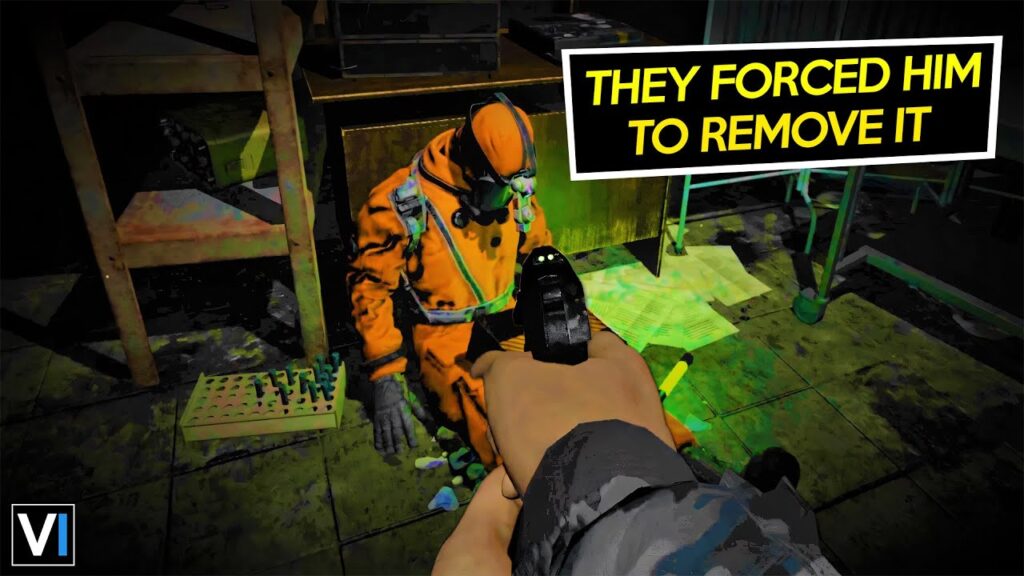Paradox of Hope was a VR-only single-player shooter with survival horror elements. It was made by one person and garnered surprisingly positive feedback. Drawing heavy inspiration from the Metro series, the game offered a post-apocalyptic setting in the Soviet Union, complete with a dark and gritty atmosphere that evoked genuine fear. Players had the ability to turn lamps on and off, use a lighter to burn webs and light their way, and wear a gas mask in radiated areas. Additionally, the game featured a watch on the player’s left wrist, indicating how long their filter would last.
Despite being developed from scratch by one individual, the Paradox of Hope recently became unavailable to purchase on Steam. The game’s developer revealed on their Discord server that a company, whose name was not disclosed, had sent them a cease and desist order. This company accused Paradox of Hope of copyright infringement, but it remains unclear why such a large multi-million-dollar company would target a small indie VR project. The removal of the game not only affected the developer’s livelihood, as it was their primary source of income, but it also divided the gaming community.
While an official Metro VR game may be in the works, it’s extremely unlikely that Paradox of Hope would have significantly impacted its sales. In fact, the removal of the indie game could potentially result in a boycott of the official game by some players. With fantastic atmospherics and well-designed levels, Paradox of Hope showcased the developer’s talent and potential for future games. The game featured a single-player story campaign with two chapters, providing about an hour of gameplay. Although it was still in Early Access and not complete, the chapters were well-paced and engaging. The game also offered raids as a separate mode, where players ventured through procedural levels to obtain loot and had to survive long enough to reach an extraction point. The raid system was well-executed, maintaining the same intense and scary experiences as the main campaign.
To avoid further legal issues, the developer could potentially rebrand their game while using the solid foundation they have already established. One suggestion is to strip away any elements that resemble the Metro series, such as the post-apocalyptic Soviet story, lamps, lighters, and gas masks. However, the raid system, which was praised for its design, should be retained. Paradox of Hope also had a unique shopping system wherein players could buy and sell items from a merchant. The game incorporated a reputation system, which allowed players to unlock new weapons and equipment as they completed tasks assigned by the merchant. The inclusion of a storage room and workbench added depth to the experience.
While Paradox of Hope had some impressive features, there were areas for improvement. The game lacked an English voice-over option, making it challenging for non-Russian speakers to fully engage with the story. Relying solely on English subtitles disrupted gameplay flow, leading to missed instructions and confusion. Another issue arose from a lack of clarity regarding certain objectives, resulting in soft-locks and frustrating moments. The distance grab feature also fell short, requiring players to physically bend down to pick up objects. Minor adjustments to gun handling, magazine reloading, and collision mechanics would have greatly enhanced the overall gameplay experience.
Despite its flaws, Paradox of Hope demonstrated the developer’s knack for atmosphere and evoking fear. However, the constant darkness and flashlight reliance could become repetitive in future games. Adding horror elements and incorporating sections with regular enemies in well-lit areas could provide a refreshing dynamic. Fans of Paradox of Hope should show their support for the developer’s upcoming projects, and the gaming community should keep a close eye on what they create next.



1 Comment
Wow. That’s really shocking and sad. Was looking forward to this game to be completed. Thankfully, Z.O.N.A. is still available on Steam and is in VR.